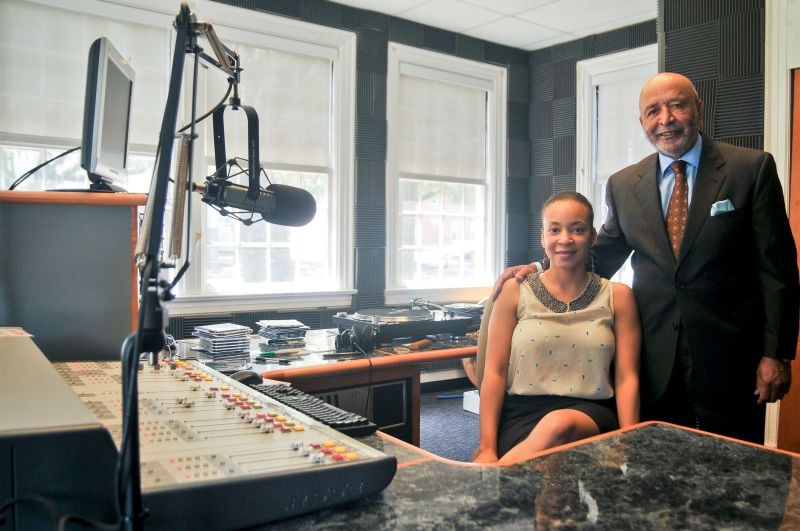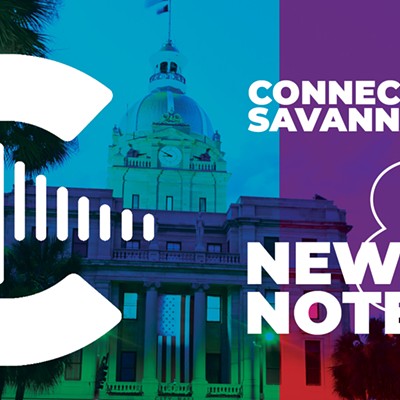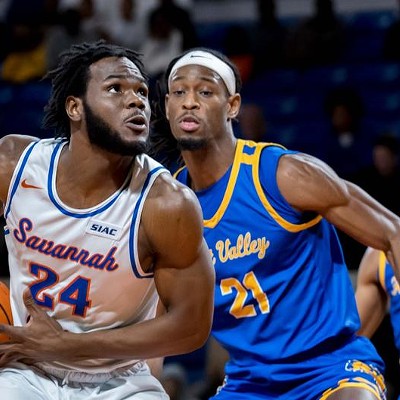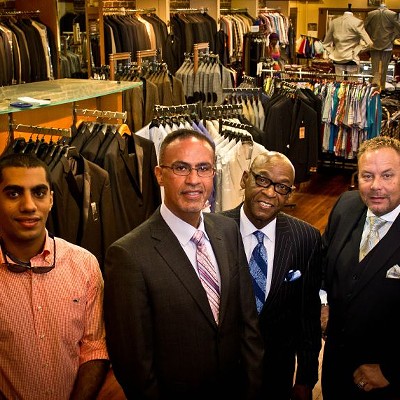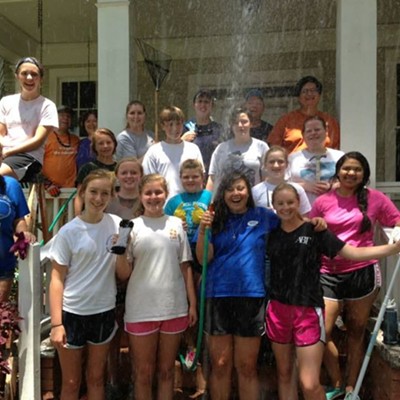If you're cruising radio stations and happen upon a 12-hour Count Basie marathon, or fresh hits from Africa, or deep reggae cuts, you've probably hit WHCJ: The Voice of Savannah State University.
Ike Carter, WHCJ 90.3 FM's iconic, papery-voiced director, coined the station's tagline when he joined the station over two decades ago. From jazz to gospel, blues to Latin music, hip-hop to alternative soul, every program speaks to WHCJ's mission as musical ambassador for the university.
"Being at an HBCU (historically black college or university), we showcase the positive achievements of people of African descent," says Carter.
"The goal is to educate through music. We present so many different types of genres, and the one thing in common African roots."
Many moons ago, as a college student at Morgan State University, an HBCU in Baltimore, Carter was an active member of the Left Bank Jazz Society, a musical society that promoted live performances from 1964 until around 2002.
It also functioned as a reading group of sorts. Each participant would share 20 minutes of music, which was then discussed, lending both a depth and breadth to the group's musical explorations.
Carter began his radio odyssey as an extracurricular hobby with weekly Society panel programs. That's when, as he says, "the bug bit him." He received his own show, during the dubious hours of 12 midnight to 6 am on Sundays.
Always on a positive tip, he observes, "I was by myself, so I had to learn everything about the station."
After a successful business career, Carter returned to his musical interests and his hometown of Savannah—two forces that shaped his motivation to share the sonorous roots of African-American achievement.
As a student at Alfred E. Beach High School, Carter notes, "I was very fortunate in my life to have the greatest mentors. My biology and chemistry teacher, Raymond Washington, used to bring music to school and play it during lunchtime. We'd discussed the history of music and musicians. We came to listen and learn."
Although not an SSU alumnus, it was natural that Carter turned his attention to Savannah State, which he'd visited since he was a little boy. He recalls, "They had trees and grass, and we could sneak in and play basketball on a real floor."
His partner in crime was often Robert Gordon, son of Asa H. Gordon, a campus leader whose name graces the university's main library. Carter was also deeply impressed by the fertile environment of scholars, including his late wife, Dr. Bettye Anne Battiste.
Like many college radio stations, however, WHCJ was not exactly in deluxe conditions.
"When I came, we were 1500 watts," he explains, "with an antenna on top of the water tower, absorbing most of the signal."
What started as a two-room enterprise blossomed into an artistic force with a 50-mile broadcast range over Chatham County, as well as portions of Effingham, Bryan, Beaufort, and Liberty counties. Internet streaming adds an international dimension.
"We get emails from all over the world, from Hong Kong to the Ukraine."
WHCJ is currently housed in Hodge Hall, a charming, wood-paneled historic building, which originally served as the president's house. Carter's personal photography collection adorns the interior. The visages of Miles Davis, Billie Holiday, Abbey Lincoln, Charles Mingus, Thelonius Monk, Horace Silver, and Sarah Vaughan oversee operations.
Humbly, Carter suggests that the primary reason for WHCJ's ascent is a community effort. Indeed, most program hosts are volunteers, who can, as he puts it, "measure their time commitment to the university in decades."
He also credits the SSU administration, especially Dr. Cheryl Dozier, university president, and Dr. Reynold Verret, provost and vice president for academic affairs, for cultivating an atmosphere of exploration and excellence.
SSU students are also part of the equation. In addition to hosting two student interns, WHCJ houses WSSU, a low-power station broadcast across the 175–acre campus. WSSU is run by students, who develop their own programs, schedules, orientations, auditions, and training. They welcome students from all majors and disciplines.
Carter marvels at how the radio business "enhances communications skills, builds confidence and self awareness," especially for those who enter the hallowed halls as "scared little freshmen" and exit as confident professionals. WHCJ alumni speak for themselves—on regional radio. For example, WHCJ veteran April Dobbs reigns as Atlanta-area's Kiss 104 weekend personality.
He is perhaps most proud of Grace Curry, an SSU graduate who worked in Washington DC theatre companies before being lured back as assistant director of the station. Carter beams as he describes how he "worked hard to get Grace back here—she has the same kind of commitment that I have. It's so rare that you find that in a young person."
For almost a decade, Lady Grace has bolstered a new generation of listeners with her Alternative Soul Café, melding spoken word and rock soul for programming with a modern twist.
With this broad range of programming, it seems pretty obvious that Ike Carter is not a top-ten-favorite-albums sort of guy.
"We're not DJs, we're programmers," he explains. "Commercial radio thrives on requests, which is why you hear the same thing over and over. I suppose I'm a frustrated musician, and I see programs as a way to make music with other people's music."
His childhood influences range from Rachmaninoff to James Brown and, "I still try to listen to as much music as I can from all kinds of artists. When you limit your appreciation to ten favorites, you're restricting yourself. There's so much beauty out there."
If you detect a hint of reverence in Carter's worldview, you aren't mistaken. For him, music represents "a high spirituality, a level higher than me sitting and talking to you. All music is about communication. Certain African people believe that music is the antenna of god—how the great creator communicates to the people. That's why the music of John Coltrane and Bob Marley transcended not only their art form, but America."
Music that is transformative, educational, and international—all from a one-story studio. In the oft-repeated words of Carter's program round-up: "that about brings us up to date. Now, let's get back into the music."

